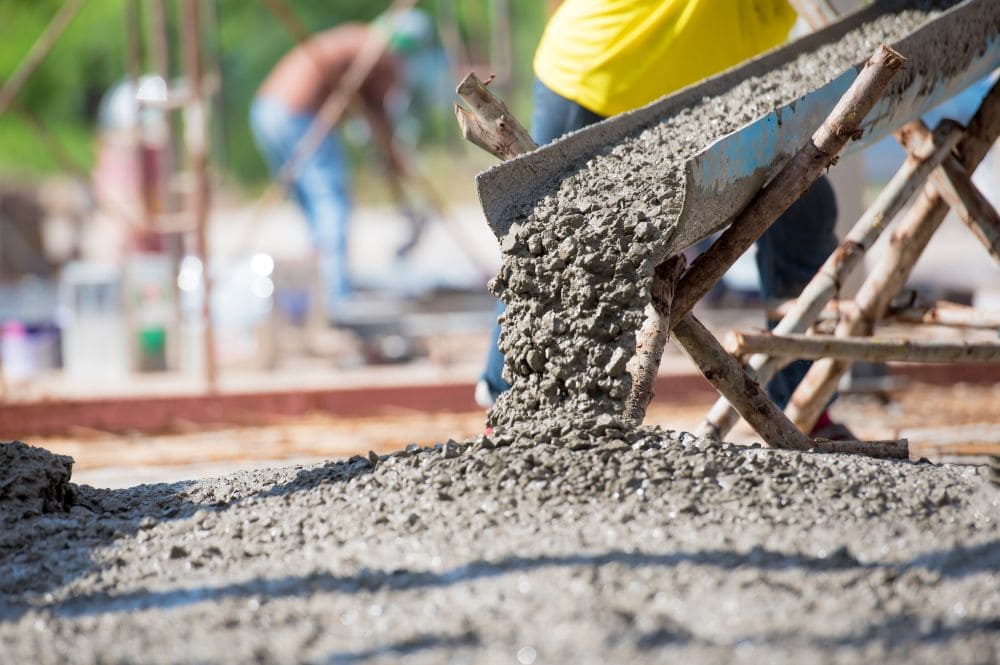Recycled concrete represents a significant stride toward sustainable construction, transforming waste from demolished structures into valuable resources for new projects. This innovative process not only champions environmental responsibility but also presents a viable solution to the growing demands of the construction industry. By repurposing concrete from demolished buildings and infrastructure, we can significantly reduce the reliance on natural resources and minimize the ecological footprint of construction activities. In this article about recycled concrete, we will explore its production, process, uses, benefits, and limitations. In addition, we will highlight its role in modern construction and Environmental Conservation.
The Recycling Process
The process of transforming discarded concrete into a usable material is fascinating and intricate. Initially, the concrete is subjected to a rigorous crushing process using industrial-grade equipment designed to break it down into smaller pieces. This step is followed by a thorough screening process to remove any extraneous materials, such as dirt or metal remnants. The resulting product, known as recycled concrete aggregate (RCA) is then sorted into different sizes to suit various construction needs. This process not only recovers valuable materials but also ensures that the recycled concrete meets the necessary quality standards for its subsequent applications.
Uses of Recycled Concrete
Recycled contract is used in a variety of construction applications, each leveraging its unique properties. As a substitute for traditional aggregates, RCA is widely used in creating new concrete mixtures, serving as a foundation for roads, and landscaping, and even as base material for trenches. It is particularly effective in projects where high-end strength is not paramount, such as in retaining walls or road embankments. The versatility of recycled concrete extends to drainage-focused concrete applications, where its properties help in water management solutions. These diverse uses underscore the adaptability of recycled concrete in the construction sector.
Environmental and Economic Benefits
The environmental and economic advantages of using recycled concrete are substantial. Environmentally, recycled concrete greatly reduces the demand for natural resources, decreasing the ecological impact of raw material extraction and transportation. This process plays a pivotal role in the decarbonization of the construction industry by significantly lowering greenhouse gas emissions compared to using virgin materials. Economically, recycled concrete offers cost savings by reducing the need for new materials and cutting down on disposal expenses. Moreover, the energy efficiency gained in recycling concrete over extracting and processing new aggregates is a significant advantage, further strengthening its case as a sustainable construction material.
Limitations and Performance
Despite its numerous benefits, recycled concrete does have its limitations. The strength and durability of recycled concrete are generally lower than that of newly mixed concrete. This difference arises from the variable quality of the original concrete and the presence of contaminants that might weaken the new mixture. In addition, the higher porosity of recycled concrete makes it more vulnerable to moisture, potentially leading to structural degradation over time. These limitations restrict the use of recycled concrete in high load-bearing structures, such as high-rise buildings or heavily trafficked bridges, where superior strength and durability are of the utmost importance.
Conclusion
Recycled concrete is a key player in the sustainable construction arena, offering a viable solution to the challenges of resource conservation and environmental protection. While it is an excellent choice for certain types of construction work, its applications need to be carefully considered in projects demanding high structural integrity. As the construction industry evolves toward more sustainable practices, recycled concrete is a great example of how innovation and environmental consciousness can go hand in hand, paving the way for a more sustainable future in construction.
Brannan Companies, began in 1906 as a gravel business and has expanded with over a century of service in Colorado. We provide high quality aggregates and construction services to a variety of businesses.
Today, Brannan stands out in the construction industry for our extensive experience, knowledgeable team, and wide-ranging services. We provide a one-stop solution for construction needs, backed by a commitment to safety, innovation, and customer satisfaction. Our history of contributing to major projects showcases our capability and reliability.
For more information about the products and services we provide, contact us via our website or give us a call at 303-534-1231.

